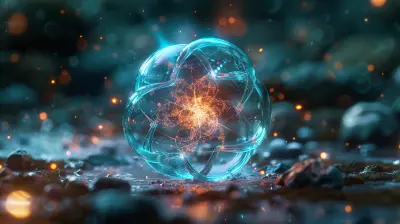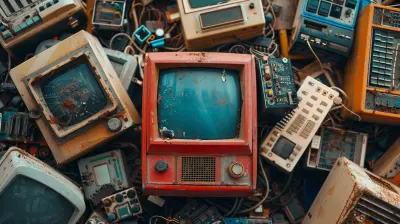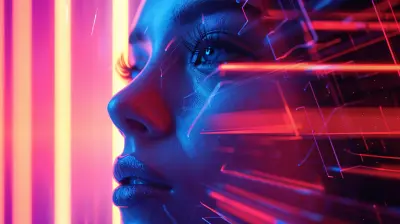The Role of AI in Modern GPUs: Enhancing Performance and Efficiency
6 July 2025
Let’s be honest—talking about GPUs used to be something only gamers and hard-core computer geeks got excited about. But things have changed, and it's all thanks to AI. Today, the role of AI in modern GPUs has gone far beyond just powering up your favorite games. It's about boosting performance, reducing power usage, and kicking overall efficiency into overdrive. And yeah, it’s pretty exciting.
So, if you’ve ever wondered how AI is reshaping the way our GPUs work, buckle in. This isn’t just another tech buzzword moment—this is the future of computing, and we’re living smack in the middle of it.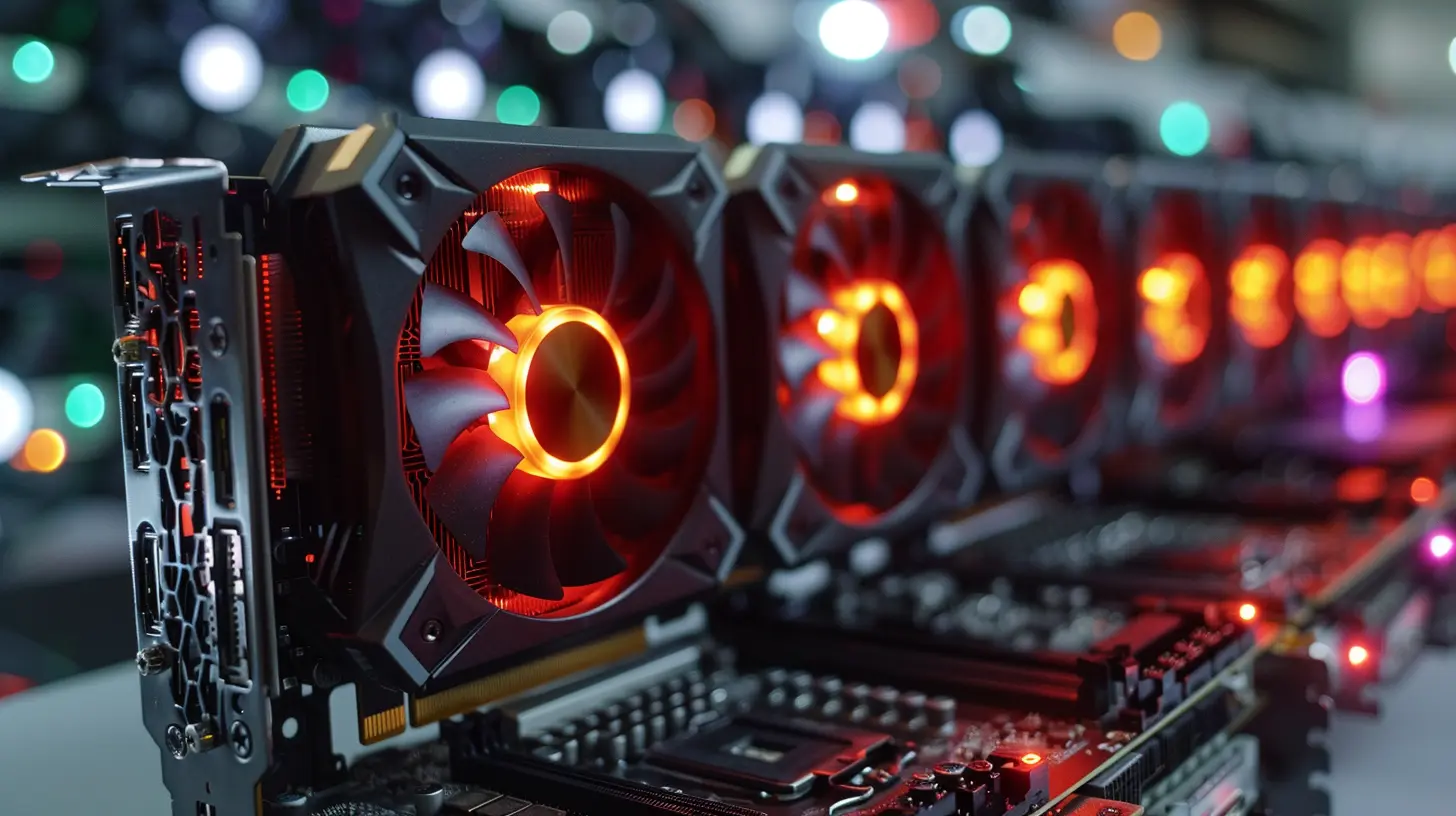
Why GPUs and AI Are the Perfect Match
Remember how CPUs were once the kings of computing? Well, they’ve had to share that crown. Graphics Processing Units (GPUs) were initially created for rendering pixel-perfect visuals in video games. But guess what? Those same features—parallel processing, high throughput, and incredible number-crunching ability—make them an ideal fit for AI workloads.Now, AI needs a ton of data to run its magic, and that data has to be processed fast. GPUs are like the muscle cars of the computing world—they handle heavy loads gracefully and fast. So it's no surprise that AI and GPUs go together like peanut butter and jelly.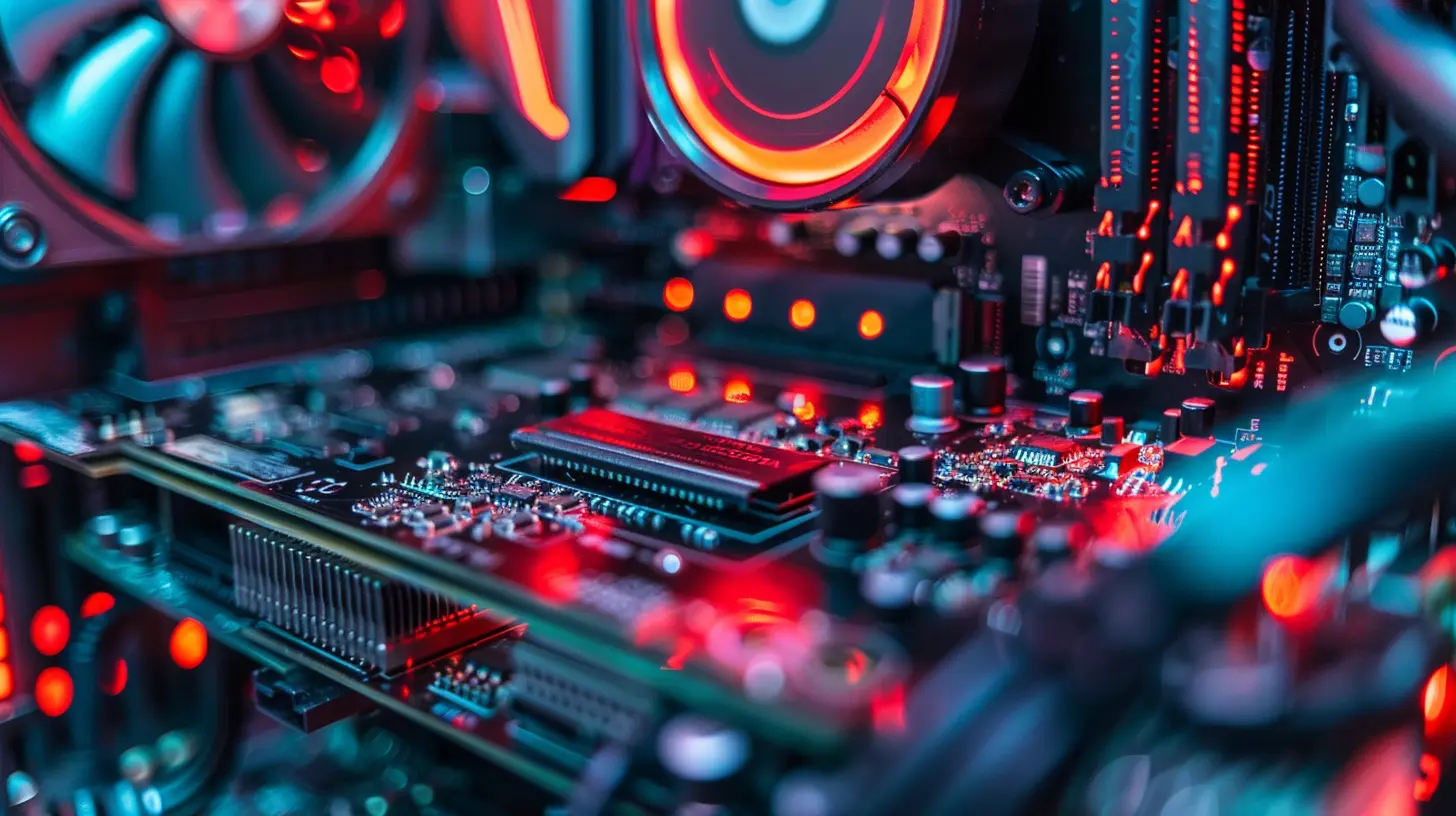
The AI Upgrade: How GPUs Are Getting Smarter
Tensor Cores and AI Acceleration
Modern GPUs, especially from companies like NVIDIA and AMD, are no longer just about rendering graphics. Enter the Tensor Core—these special units are designed specifically to handle the complex mathematical operations used in AI and machine learning.Tensor cores process matrices at lightning speed, which is a fancy way of saying they help the GPU “think” faster when doing tasks like image recognition, natural language processing, and deep learning. The result? Better performance with less energy used.
Smart Scheduling and Workload Management
AI isn’t just helping with the heavy lifting—it’s also playing manager now. One of the coolest developments in GPU architecture is the use of AI to schedule and balance tasks more efficiently.Think of it as an intelligent traffic cop directing data so it flows smoothly and quickly, without bottlenecks. That means your applications run faster, your battery lasts longer, and your system doesn’t cook itself trying to keep up.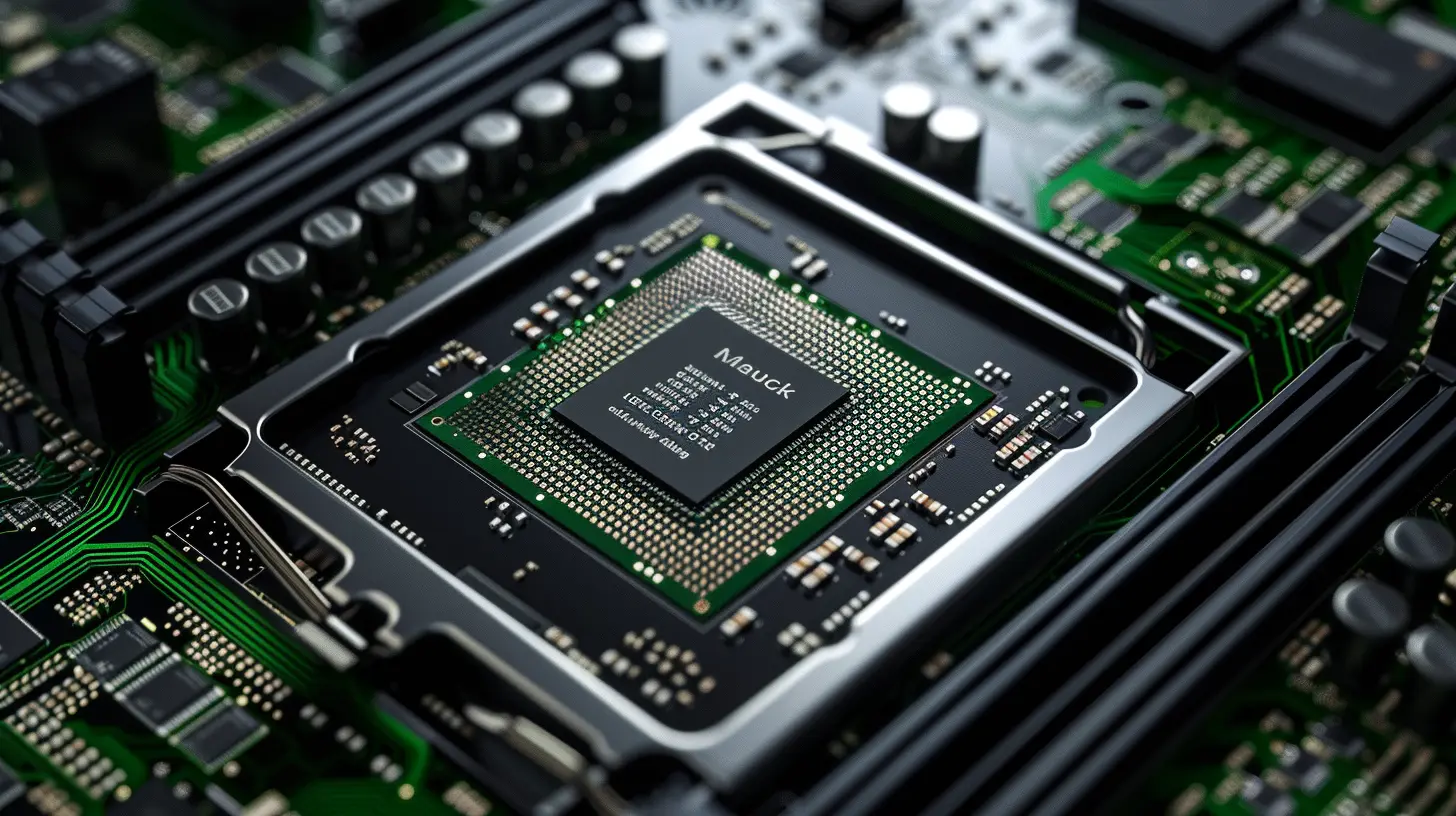
Deep Learning and Real-Time Performance
Real-Time Ray Tracing
Ever looked at a video game and thought, “Wow, this looks almost real”? You can thank AI-enhanced GPUs for that. Real-time ray tracing—a technique that mimics the way light works in the real world—is extremely demanding. But with AI, GPUs can predict and simulate lighting with much less power, delivering jaw-dropping visuals with smoother frame rates.DLSS: Deep Learning Super Sampling
Let’s talk about NVIDIA’s DLSS (Deep Learning Super Sampling). It’s like magic. The GPU renders a game at a lower resolution and then uses AI to upscale it in real-time, making it look like it's running in full 4K while consuming way fewer resources.So, instead of forcing your GPU to work like it's in a crunch gym session 24/7, DLSS lets it chill while still giving you the same high-quality results. Efficient and smart.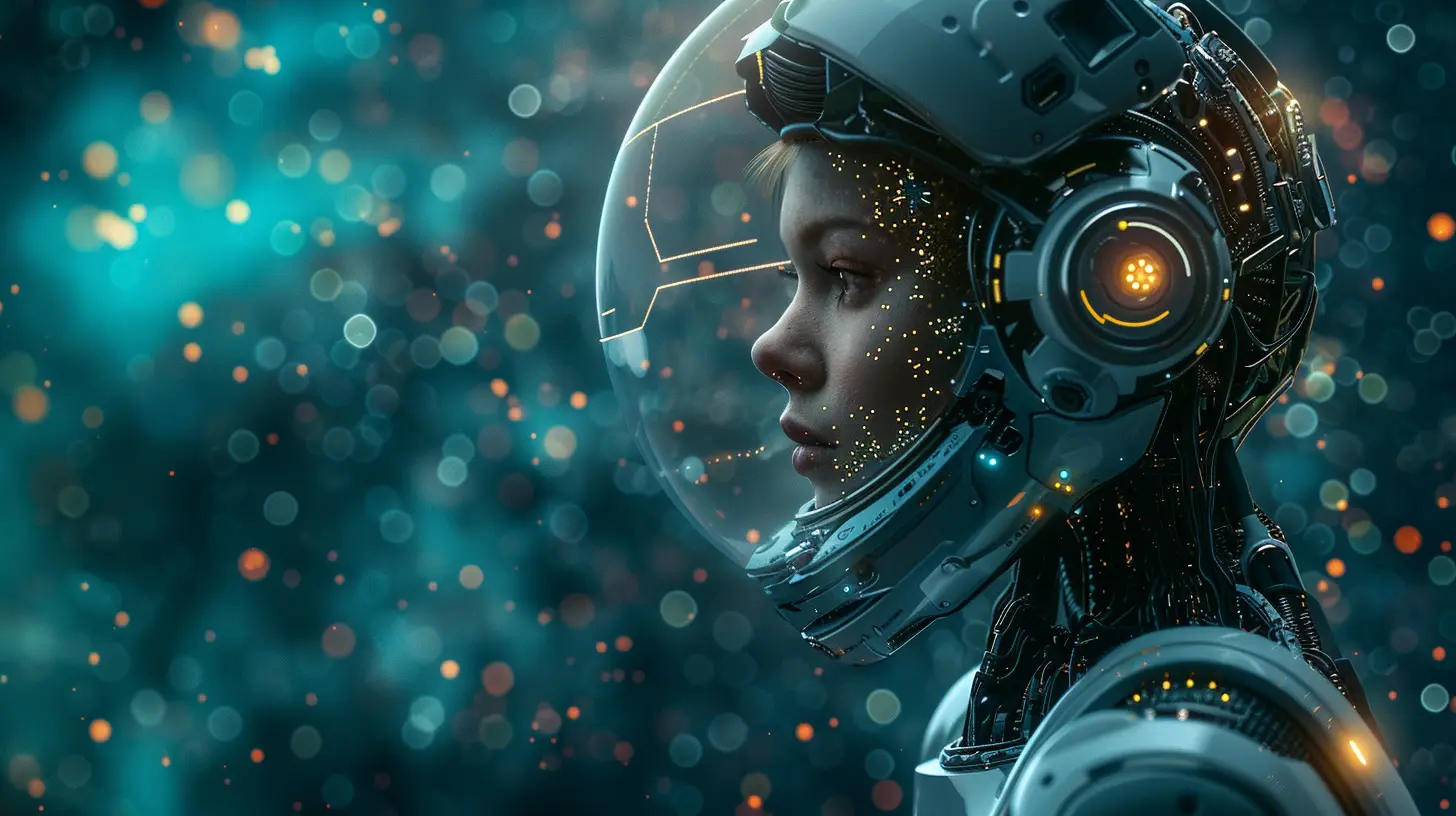
AI in Professional Workloads
Content Creation and Rendering
If you’re a video editor, motion graphics designer, or 3D animator, AI-powered GPUs are changing the game. They significantly cut down render times using tools like Adobe Sensei or AI-assisted plugins. What used to take hours can now be done in minutes.And no, it’s not just speed. AI can predict what you’re about to do, auto-suggest edits, fix colors, and even clean up audio. It’s like having a digital assistant that knows your style.
Scientific Computing and Research
In science and healthcare, AI GPUs are accelerating simulations and data analysis. From drug discovery to climate modeling, AI helps researchers process mind-bending datasets in record time.Essentially, GPUs empowered by AI are like digital lab assistants that never need coffee breaks. They’re efficient, reliable, and fast.
Power Efficiency: Doing More with Less
Smarter Power Management
AI isn't just making GPUs faster—it's making them smarter with power, too. Through techniques like dynamic voltage and frequency scaling (DVFS), AI can tweak the power usage on the fly. So when the GPU doesn’t need to go all-out, it chills out and saves energy.And for mobile devices like laptops? This is huge. You get performance without draining your battery in two hours flat.
Thermal Management
Ever placed your hand near a gaming laptop and felt it could double as a space heater? AI is helping here too. New GPUs can predict temperature spikes and adjust cooling systems proactively—more fan when needed, less fan when not. It keeps noise down and performance up.AI, GPUs, and the Cloud
Let’s not forget the cloud. AI-based applications hosted on services like AWS, Azure, and Google Cloud depend heavily on GPU processing power.When you run a voice assistant, stream ultra-HD content, or even use real-time translation apps, you’re probably tapping into a remote AI supercomputer running on AI-enhanced GPUs.
So even if you don’t own a fancy graphics card, you’re still reaping the benefits every time you pull out your phone.
Gaming: Still the Heart, but Now Supercharged
Gamers, don’t worry—we didn’t forget you. AI-infused GPUs are doing wonders for your favorite hobby. You’ve got smarter NPCs, adaptive difficulty, better load balancing, and faster load times.Modern titles use AI to enhance realism, both visually and in gameplay. Ever been stalked by a terrifyingly smart enemy in a horror game? Yep, you can thank AI for that immersive experience.
What’s Coming Next?
AI-Driven GPU Design
We’ve seen AI enhance how GPUs work, but now it’s helping design the chips themselves. That’s like a robot helping to build a better robot. Companies like NVIDIA are using AI to optimize semiconductor layouts, which leads to more efficient, powerful, and even smaller chips.Personalized Experiences
Imagine a GPU that learns how you use your system—your favorite apps, your workflow, your quirks. Then it optimizes performance just for you. That’s what AI is working toward—making your computing experience as unique as your morning coffee order.Challenges Ahead
Okay, it’s not all sunshine and rainbows. There are a few wrinkles to iron out.- Cost: AI-optimized GPUs are expensive. While prices are slowly coming down, getting your hands on the latest hardware can still burn a hole in your wallet.
- Complexity: They’re super powerful, but that comes with a learning curve. Tapping into the full potential of AI-powered GPUs often requires specialized knowledge.
- Ethical Concerns: As AI becomes smarter, there’s always the conversation around how it's used. Whether it's facial recognition or surveillance, the same tech that creates efficiencies can also invade privacy.
Final Thoughts: More Than Just Hype
There was a time when “AI” felt like marketing fluff—a way to sell you something new without any real benefit. But not anymore. The integration of AI into modern GPU architecture is transforming how we interact with technology on every level.From gaming and content creation to advanced research and cloud computing, AI is making GPUs faster, smarter, and more efficient. And here’s the kicker: we’ve only just scratched the surface.
Whether you're a developer, content creator, gamer, or casual user, chances are AI-enhanced GPUs have already touched your digital life in some way. And they're only going to get better from here.
TL;DR (Too Long; Didn't Read)
AI isn’t just an add-on feature in modern GPUs—it’s the heart of innovation. With smarter processing, better energy efficiency, and a jaw-dropping boost in performance, AI is redefining what GPUs can do. Whether you’re gaming, editing videos, or running scientific simulations, this tech is designed to work smarter, not harder. And that’s a win for all of us.all images in this post were generated using AI tools
Category:
Computer HardwareAuthor:

Reese McQuillan
Discussion
rate this article
2 comments
Elwynn McIlwain
AI significantly optimizes GPU performance, revolutionizing efficiency in computing tasks.
November 8, 2025 at 4:58 AM

Reese McQuillan
Thank you for your comment! Indeed, AI plays a crucial role in optimizing GPU performance and efficiency, driving innovation in computing tasks.
Stephanie McMahan
Oh great, just what we needed—AI helping our GPUs be even more efficient! Because why should our graphics cards just crunch numbers when they can have an identity crisis, too? Can’t wait for the drama!
July 11, 2025 at 12:33 PM

Reese McQuillan
I appreciate your humor! While it may seem dramatic, AI in GPUs truly aims to optimize performance, not create an identity crisis. Your insights are always welcome!
